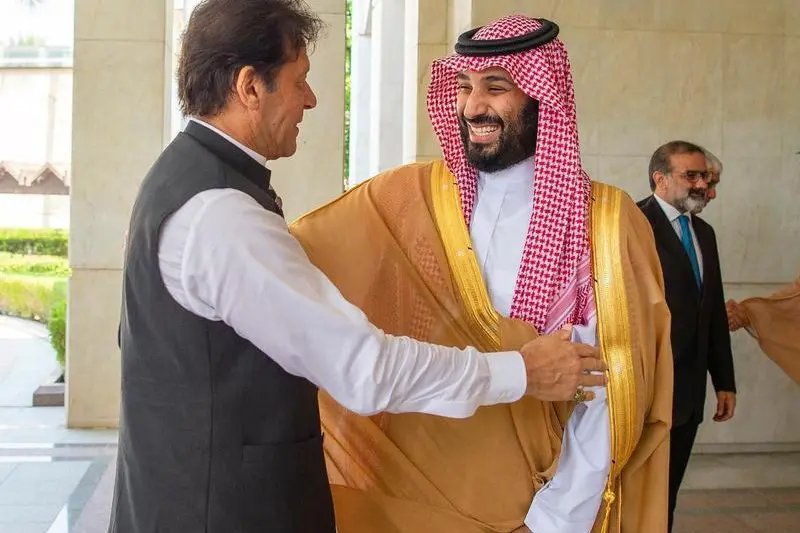PHOTO
ISLAMABAD: Pakistan and Saudi Arabia will sign a cooperation agreement between their official news agencies by December, Firdous Ashiq Awan, Pakistani Prime Minister Imran Khan’s special assistant on information and broadcasting, told Arab News on Saturday. In August this year, Saudi Media Minister Turki Al-Shabanah met with Pakistani Foreign Minister Shah Mehmood Qureshi to discuss enhancing media cooperation.
Awan said: “Pakistani and Saudi state TV will have exchange programs. We’re also working on exchanges of media delegations.” She added that she will be leave “soon” for an official visit to Saudi Arabia to finalize the agreement. “We’ll finalize our framework by December 2019, and 2020 will be a new era of strong media engagements between the two countries,” Awan said. The cooperation will help change the perception of Saudi Arabia in Pakistan as an “ultra-conservative country,” she added. Under the leadership of Crown Prince Mohammed bin Salman, the Kingdom has become enlightened and progressive, Awan said. “Now, the world is getting more information about the new Saudi Arabia. We have to market this change, which both countries can do by joining hands in the fields of media and information, and for which a mechanism is being designed,” she added. Awan said Pakistan will stand by Saudi Arabia as a strong partner through enhanced media-to-media and people-to-people contacts. She stressed the need for a joint communication strategy with the Kingdom to promote and project the true image of Islam worldwide.
“It will also serve the vision of both leaders (Khan and the crown prince) to dispel the negative perception about Islam and promote the true face of Islam before the world,” Awan said.
Last month at the UN General Assembly in New York, Khan made an impassioned appeal to the West against growing Islamophobia, and warned the world about its consequences.
He also spoke of the possibility of an Islamic TV channel in collaboration with other Muslim countries to contest negative media portrayals of Muslims.
Earlier this week, a Saudi-Pakistani parliamentary friendship committee met in Riyadh to discuss greater collaboration between institutions in both countries. Awan said Pakistan and Saudi Arabia are also improving business contacts and cooperation in the tourism sector. The Kingdom is Pakistan’s “true economic partner,” she added. Last year, Saudi Arabia gave $6 billion in aid to Pakistan and averted a balance of payments crisis. During his maiden visit to Pakistan in February this year, the crown prince signed investment agreements worth $20 billion. “When Pakistan was nearing bankruptcy, the economy was in shambles, foreign reserves were at a historic low, and we were unable even to pay back our due instalments on loans, the Saudi leadership stood by us, helped improve our foreign reserves and provided oil on deferred payment. It helped stabilize our economy,” Awan said.
“Saudis have always safeguarded Pakistan’s national interests and supported its strategic narrative.” She added that in turn, Pakistan’s armed forces are always ready to play their role in protecting the Kingdom’s national security. “Any challenge to Saudi Arabia’s security and sovereignty is a challenge for Pakistan,” she said. “Pakistan will always stand by Saudi Arabia against any threat.” Awan said Khan not only condemned last month’s attacks on two Saudi oil facilities, but described them as “an attack on Pakistan.” She added: “Riyadh could play an important role in raising the Kashmir issue at the Organization of Islamic Cooperation (OIC).”
Copyright: Arab News © 2019 All rights reserved. Provided by SyndiGate Media Inc. (Syndigate.info).





















